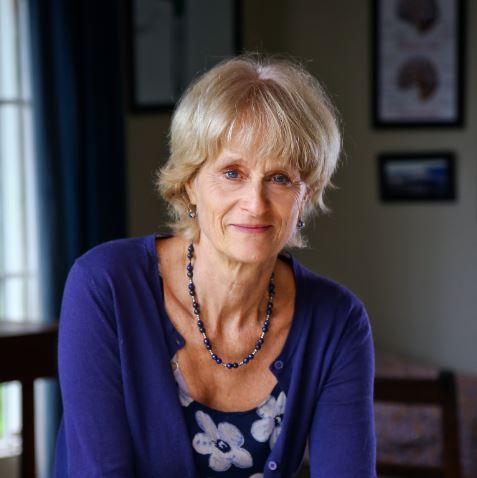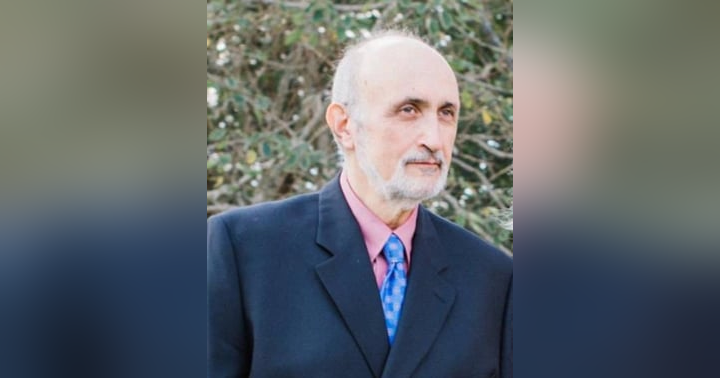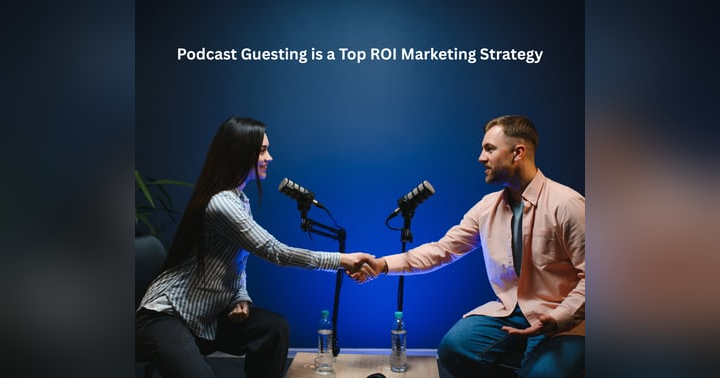
We’re diving deep into a topic that often gets overlooked when we talk about health and wellness: the profound impact of unforgiveness on your physical and emotional well-being. Holding onto grudges, resentment, and bitterness can silently poison your system, leading to a range of health issues. In this blog post, we'll uncover the science behind this connection and offer practical steps you can take to release resentment and cultivate forgiveness for improved health.
This discussion is inspired by my recent conversation with Hanna Kok, a coach, speaker, and medical intuitive, on The Science Of Forgiveness With Hanna Kok podcast episode. Hanna's expertise in the intersection of body, mind, and spirit sheds light on why forgiveness is a biological act, not just a spiritual one. Let's unpack how unresolved emotions, especially unforgiveness, can disrupt hormones, immunity, and overall health, and discover actionable tools for releasing these "emotional toxins."
The Silent Poison of Unforgiveness
Unforgiveness isn’t just about holding a grudge; it’s about the sustained physiological impact of that grudge on your body. When you harbor resentment, your body experiences a chronic stress response. This constant state of alert can wreak havoc on your hormonal balance, immune system, and even your cardiovascular health. It’s like constantly ingesting a silent poison, slowly eroding your well-being from the inside out.
The Profound Connection Between Emotions and Physical Health
The mind-body connection is no longer a fringe concept; it’s a well-established scientific reality. Our emotions directly influence our physiological processes. When we experience negative emotions like anger, resentment, or fear, our body releases stress hormones like cortisol and adrenaline. While these hormones are helpful in acute, short-term situations, chronic exposure can lead to a host of health problems. Think of it as your body being perpetually stuck in "fight or flight" mode, which is incredibly taxing on your system.
Hanna Kok's Insights: Unforgiveness as a Biological Act
Hanna Kok emphasizes that forgiveness isn't merely a spiritual or moral concept but a biological imperative. Holding onto unforgiveness keeps the body in a state of chronic stress, which inhibits its natural ability to heal and repair itself. By reframing forgiveness as a biological act, we can begin to understand its profound impact on our overall health. Hanna’s work highlights that resolving emotional roots often improves hormones, immunity, and resilience without medications, restrictive diets, or lifestyle overhauls.
How Unresolved Emotions Disrupt Hormones and Immunity
Unresolved emotions, particularly those associated with unforgiveness, can throw your hormones completely out of whack. Chronic stress leads to elevated cortisol levels, which can disrupt the production of other essential hormones like insulin, thyroid hormones, and sex hormones. This hormonal imbalance can manifest in various ways, including weight gain, fatigue, mood swings, and reproductive issues.
Similarly, the immune system suffers under the weight of chronic stress. Cortisol suppresses the immune system, making you more susceptible to infections and autoimmune diseases. The body becomes less effective at fighting off pathogens and repairing damaged tissues, leaving you vulnerable to a wide range of illnesses.
Understanding "Emotional Toxins" and Their Impact
Hanna Kok often refers to unresolved emotions as "emotional toxins." These toxins are essentially negative energy that gets trapped in the body, affecting its normal functions. Think of them as emotional pollutants that contaminate your internal environment, leading to physical and emotional distress. These emotional toxins can manifest as physical symptoms, such as chronic pain, digestive issues, skin problems, and more.
Educational Kinesiology/Brain Gym: Creating Subconscious Shifts
Educational Kinesiology, often known as Brain Gym, is a system of simple movements designed to integrate the mind and body, facilitating learning and overall well-being. These movements help to release emotional blockages and create new neural pathways, promoting a sense of balance and harmony. By engaging in Brain Gym exercises, you can create subconscious shifts that support forgiveness and emotional healing.
Medical Intuition: Reading Patterns Behind Physical Issues
Medical intuition is the ability to perceive information about a person’s physical and emotional state through intuitive means. Medical intuitives can often identify the underlying emotional patterns contributing to physical ailments. By understanding these patterns, individuals can address the root causes of their health issues and embark on a path of healing and forgiveness. Hanna Kok uses her medical intuition to help clients resolve the emotional roots of physical distress.
Why Holding Grudges Harms Your Health: The Silent Poison Explained
Holding onto grudges is like carrying a heavy burden. This burden weighs down your emotional and physical well-being. The constant anger, resentment, and bitterness associated with unforgiveness trigger a chronic stress response, leading to hormonal imbalances, immune suppression, and increased inflammation. Inflammation, in particular, is a major contributor to many chronic diseases, including heart disease, diabetes, and cancer.
Moreover, unforgiveness can isolate you from others, leading to feelings of loneliness and disconnection. These feelings can further exacerbate stress and negatively impact your mental and physical health. It’s a vicious cycle that perpetuates itself until you consciously choose to break free.
Meridians and Mindset: Opening Energy Flow Through Thought Patterns
Traditional Chinese Medicine (TCM) teaches that the body has a network of energy pathways called meridians. These meridians carry vital energy, or Qi, throughout the body. When these pathways become blocked or stagnant, it can lead to physical and emotional imbalances. Our thoughts and emotions can significantly impact the flow of Qi through our meridians. Negative thought patterns, such as those associated with unforgiveness, can constrict the flow of energy, leading to blockages and stagnation.
By cultivating positive thought patterns and practicing forgiveness, we can open up these energy pathways and promote the free flow of Qi. This, in turn, supports the body’s natural healing processes and promotes overall well-being.
Practical Forgiveness: Reframing and Releasing Resentment
Forgiveness isn’t about condoning the actions of the person who hurt you; it’s about releasing the emotional burden you’re carrying. It’s about freeing yourself from the grip of resentment and reclaiming your power. Here are some practical steps you can take to cultivate forgiveness:
- Acknowledge your feelings: Allow yourself to feel the pain, anger, and resentment without judgment.
- Reframe the situation: Try to see the situation from a different perspective. Consider the other person’s motives and circumstances.
- Practice empathy: Try to understand the other person’s experience, even if you don’t agree with their actions.
- Release the need for revenge: Let go of the desire to get even. Revenge only perpetuates the cycle of pain and suffering.
- Focus on healing: Shift your focus from the past to the present. Take steps to heal your emotional wounds and move forward.
- Forgive yourself: Often, we hold ourselves accountable for the actions of others. Forgive yourself for any role you played in the situation.
- Let go: Once you’ve gone through these steps, consciously choose to let go of the resentment and bitterness.
Case Stories: Real-Life Examples of Healing Through Forgiveness
Hanna Kok has worked with numerous clients who have experienced profound healing through forgiveness. For example, she recounts stories of women experiencing menstrual pain relief, reduced medication dependency, and faster recovery after medical treatments, all thanks to addressing underlying emotional issues and practicing forgiveness.
These case stories demonstrate the transformative power of forgiveness and highlight the importance of addressing the emotional roots of physical ailments. By releasing resentment and cultivating forgiveness, individuals can unlock their body’s natural healing potential and experience greater health and well-being.
Allergies and "Re-Education": A New Perspective
Hanna also offers a unique perspective on allergies, viewing them as a form of "miscommunication" within the body. She uses allergy re-education techniques to help clients identify and resolve the emotional roots of their allergies. This involves re-training the immune system to respond appropriately to previously triggering substances. It’s crucial to emphasize that this should be done under proper guidance and doesn't replace necessary medical treatments; it's about addressing the emotional component contributing to the allergic response.
Trauma, Relationships, and Addiction: Resolving Root Causes
Trauma, unhealthy relationships, and addiction often have deep emotional roots. Unforgiveness can play a significant role in perpetuating these patterns. By resolving past traumas, setting healthy boundaries in relationships, and addressing the underlying emotional needs driving addictive behaviors, individuals can break free from these destructive cycles and create a more fulfilling life. This journey often involves self-compassion, professional guidance, and a commitment to healing.
Daily Practices for Self-Talk and Self-Respect
Cultivating positive self-talk and self-respect is essential for emotional well-being and forgiveness. Here are some daily practices you can incorporate into your routine:
- Affirmations: Start your day with positive affirmations about yourself and your worth.
- Gratitude: Practice gratitude by acknowledging the good things in your life, no matter how small.
- Self-compassion: Treat yourself with the same kindness and compassion you would offer a friend.
- Mindfulness: Practice mindfulness by paying attention to your thoughts and feelings without judgment.
- Boundaries: Set healthy boundaries in your relationships and honor your own needs and limits.
- Self-care: Engage in activities that nourish your mind, body, and soul, such as exercise, meditation, or spending time in nature.
Resources: Hanna Kok's iThrive/iDrive App and Other Helpful Tools
Hanna Kok has developed a web app called "iThrive/iDrive" (available at ithrive.zone/hb) with audio tracks designed to help release emotions and support various aspects of health, including hormones, addictions, and allergies. Additionally, she has authored a book, "Happy Ever After: Make Your Relationships Flourish" (2nd edition forthcoming), offering practical guidance on building healthy relationships. These resources can be valuable tools on your journey to forgiveness and emotional healing.
Cultivating Forgiveness for Improved Well-being
Forgiveness is not a one-time event but an ongoing process. It requires commitment, patience, and self-compassion. By consciously choosing to release resentment and cultivate forgiveness, you can break free from the silent poison of unforgiveness and experience improved physical and emotional well-being. Remember, forgiveness is not about condoning the actions of others; it’s about freeing yourself from the burden of resentment and reclaiming your power.
In conclusion, the journey towards better health often requires us to look inward and address the emotional factors that can silently undermine our well-being. Unforgiveness, as we've explored, can be a potent "emotional toxin" that disrupts our hormones, weakens our immunity, and ultimately diminishes our quality of life. By understanding the connection between our emotions and physical health, and by adopting practical strategies for cultivating forgiveness, we can unlock our body’s natural capacity for healing and renewal.
I hope this exploration has provided valuable insights and actionable steps for your own journey towards improved health and forgiveness. Don't forget to listen to the full conversation with Hanna Kok on The Science Of Forgiveness With Hanna Kok to delve deeper into this topic and gain even more valuable insights. Until next time, take care of your body and mind, and remember that forgiveness is not just a gift to others, but a gift to yourself.










